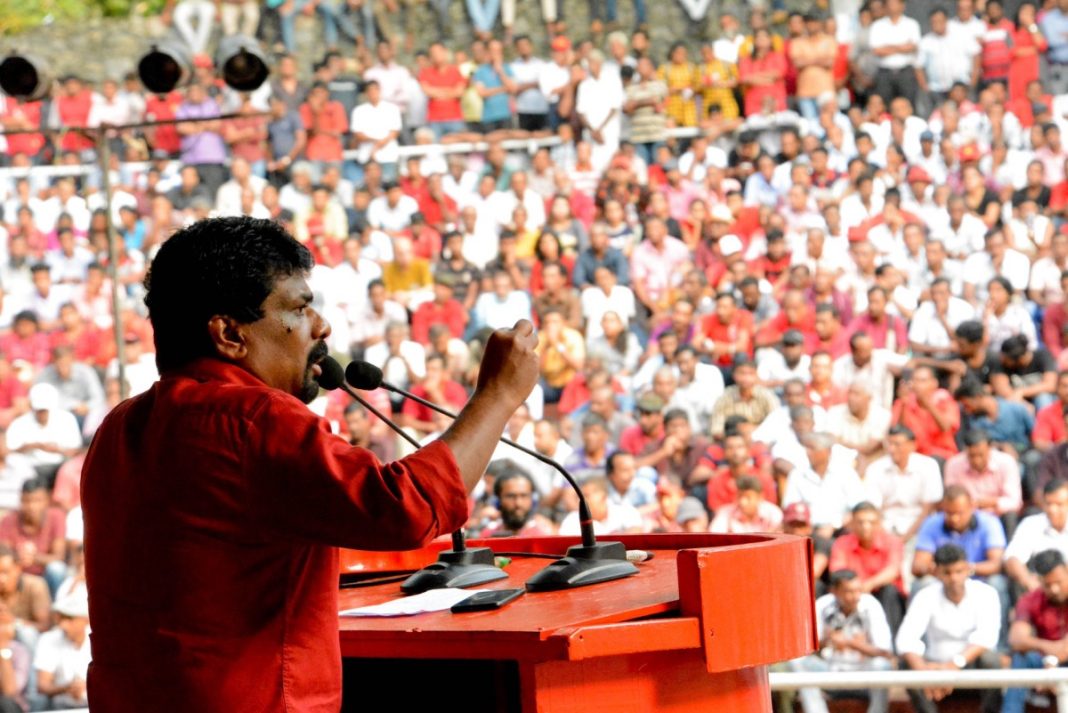COLOMBO, Sri Lanka — Anura Kumara Dissanayake, leader of the Marxist-leaning National People’s Power (NPP) coalition, was sworn in as Sri Lanka’s new president on Monday, September 23, 2024, after winning a contentious election marked by widespread dissatisfaction with the country’s political establishment.
Dissanayake, 55, took the oath of office following a decisive victory in the election held on Saturday, where he defeated incumbent President Ranil Wickremesinghe, opposition leader Sajith Premadasa, and 35 other candidates.
The election was held against the backdrop of a severe economic crisis that has gripped Sri Lanka since 2022, leading to shortages of essential goods such as food, medicine, and fuel.
This economic collapse triggered mass protests, culminating in the resignation and flight of then-President Gotabaya Rajapaksa.
Dissanayake, acknowledging the formidable challenges facing his administration, struck a cooperative tone in his first speech after being sworn in.
“We have deeply understood that we are going to get a challenging country,” he said. “We don’t believe that a government, a single party, or an individual would be able to resolve this deep crisis.”
Dissanayake’s victory signals a significant shift in Sri Lankan politics.
His NPP coalition, led by the Janatha Vimukthi Peramuna (JVP) or People’s Liberation Front, has a history rooted in Marxist ideology and previously attempted armed insurrections in the 1970s and 1980s to seize power.
The JVP transitioned to democratic politics in 1994 and has remained in opposition since then.
Political analysts have noted the unique position Dissanayake finds himself in as the ninth president of Sri Lanka, a position endowed with sweeping executive powers since the creation of the presidency in 1978.
However, Dayan Jayatilleka, a political analyst and former diplomat, cautioned that Dissanayake could face hurdles due to his lack of a broad mandate.
“It’s not an insurmountable obstacle,” Jayatilleka said, “but he will have to engage as much as possible in politics of consensus.”
Dissanayake’s party holds only three out of the 225 seats in parliament, and he has pledged to dissolve the legislative body in pursuit of political reform.
His first major task as president will be to address the country’s deepening economic woes and fulfill his campaign promise to alleviate the austerity measures implemented by his predecessor, Wickremesinghe, under a bailout agreement with the International Monetary Fund (IMF).
Wickremesinghe has warned that any deviation from the terms of the agreement could delay the disbursement of nearly $3 billion in critical financial aid.
The economic crisis, exacerbated by years of excessive borrowing for projects that failed to generate revenue, the COVID-19 pandemic, and the depletion of foreign reserves to stabilize the Sri Lankan rupee, continues to weigh heavily on the country.
International reactions to Dissanayake’s victory have been swift, with Chinese President Xi Jinping extending congratulations and expressing interest in strengthening bilateral ties.
The U.S. and India also acknowledged his election earlier in the week.
As Dissanayake steps into office, he is tasked with stabilising a country in turmoil, confronting the economic fallout, and navigating a fractious political landscape, all while managing high public expectations for rapid reform and recovery.







